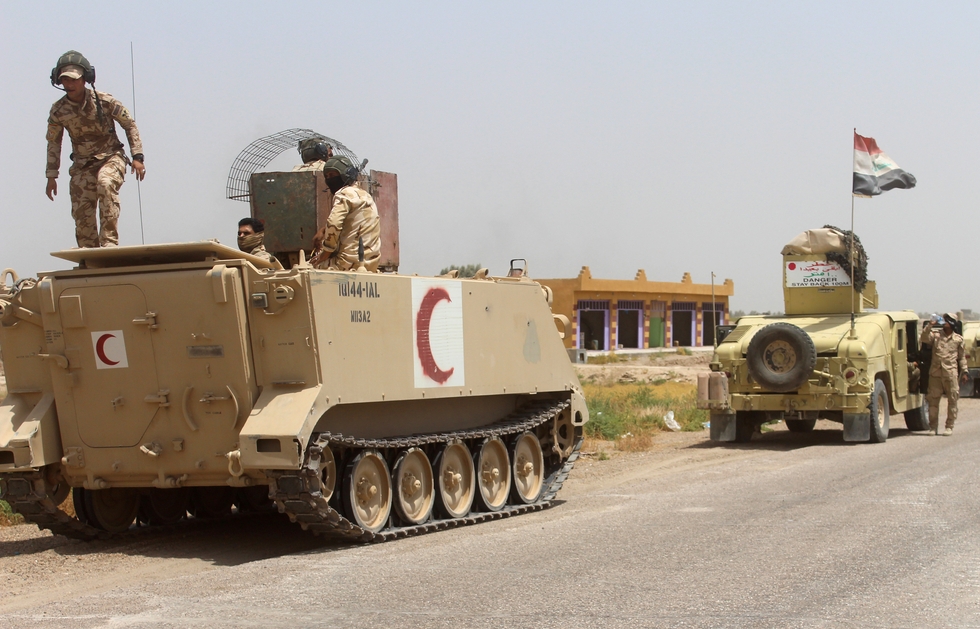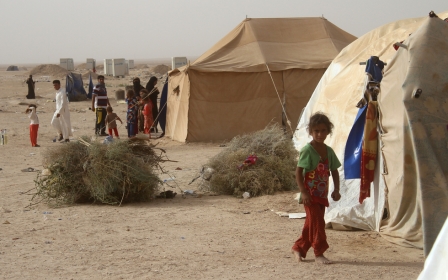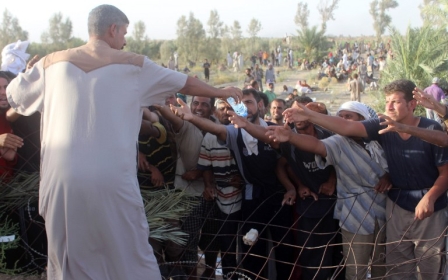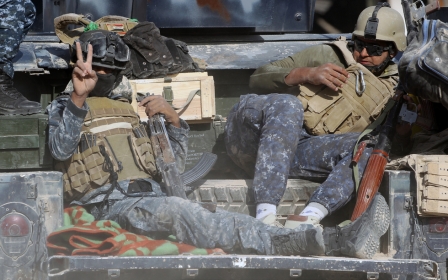Only a third of Fallujah 'cleared' of IS, US says days after victory declared

The US-led coalition against Islamic State has claimed that only one-third of Fallujah has been “cleared” of the militant group, despite an Iraqi government declaration last week that it had retaken the city.
Coalition spokesperson US Army Col Christopher Garver described the other parts of the city as “contested” and said clashes were still underway.
His comment contradicted an earlier statement by Iraqi army spokesperson Brig Gen Haider al-Obeidi who said on Friday that Iraqi troops controlled 80 percent of the city.
Garver said that most of the cleared terrain was in the south of the city while "clearing operations continue outward from the city centre".
On Monday, Lt. General Abdul-Wahab al-Saadi told local TV that around 2,500 IS militants had been killed since the operations in Fallujah began last month, around 15 percent of whom were foreign fighters.
He added that the number of IS fighters in the city was around 3,500 to 4,000 in late May.
The Iraqi government does not keep figures on the number of soldiers or fighters with Popular Mobilisation Units (PMUs) - often refered to as Shia militias, but also featuring non-Shia fighters - killed in Iraq.
A gravediiger at the Al-Salam valley graveyard in southern Iraq, however, recently told Middle East Eye that the cemetery was receiving '100 bodies a day' from fighting in Iraq.
Lack of Sunni support
The retaking of Fallujah has major symbolic and strategic significance for the Iraqi government, but the campaign to dislodge IS has proved highly controversial as a result of the PMUs which have been accused of engaging in sectarian torture and civilian killings.
In early June, local activists in Saqlawiya, a suburb north of the city, claimed that the PMUs had been killing scores of civilians fleeing from the besieged city.
Analysts have warned that maintaining control of Sunni-majority areas areas like Fallujah and the rest of Anbar province will be difficult if there is no attempt to win over hearts and minds.
"The Iraqi government is now trying to retake Anbar without many of the tools that US forces and their Iraqi allies possessed in 2006 and 2007," wrote Anthony E Deane in Foreign Policy on Tuesday.
"Most critically, it lacks a strong local force of Sunnis supporting the government, due to the well-documented sectarian behavior of Iraqi leaders in Baghdad since 2011."
However, supporters of the PMUs have pointed out that around 6,000 Sunni fighters are also taking part in the Fallujah battle and some of the unit's leaders have stressed the need for a cross-sectarian mix in their ranks.
"Having this diversity helps us liberate more cities," Diaa al-Hasnawi, a senior commander in the Abbas Battalion - one of the PMUs taking part in the Fallujah operation - told Middle East Eye.
"If we have Kurdish fighters, it is easier to liberate Kurdish cities, because of their families the know how to deal with them."
As Iraqi forces and the PMUs continue to push IS out of the city, an aid group has warned that a humanitarian crisis looms.
The Norwegian Refugee Council said on Sunday that 30,000 people were displaced in three days of fighting in Fallujah.
The aid group, which runs displacement camps around the city, said another 32,000 people had already been displaced after the start of the government offensive against the IS bastion nearly a month ago.
NRC said dozens of families remained inside Fallujah, including the most vulnerable civilians, pregnant women, the sick and elderly.
Middle East Eye propose une couverture et une analyse indépendantes et incomparables du Moyen-Orient, de l’Afrique du Nord et d’autres régions du monde. Pour en savoir plus sur la reprise de ce contenu et les frais qui s’appliquent, veuillez remplir ce formulaire [en anglais]. Pour en savoir plus sur MEE, cliquez ici [en anglais].




